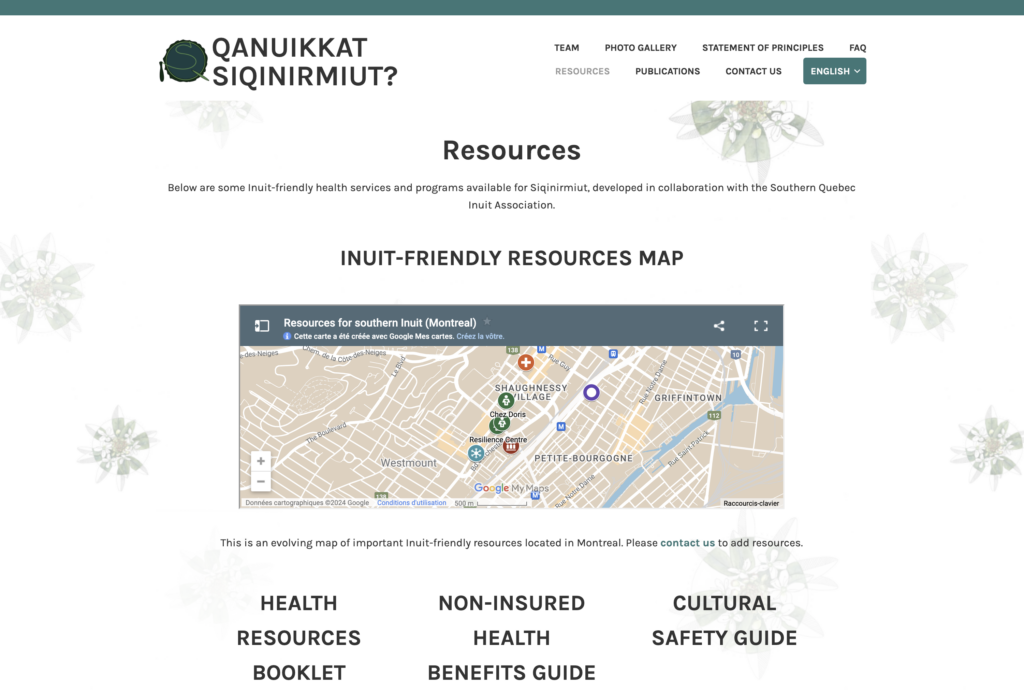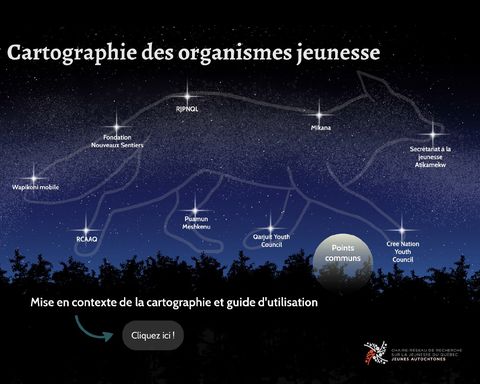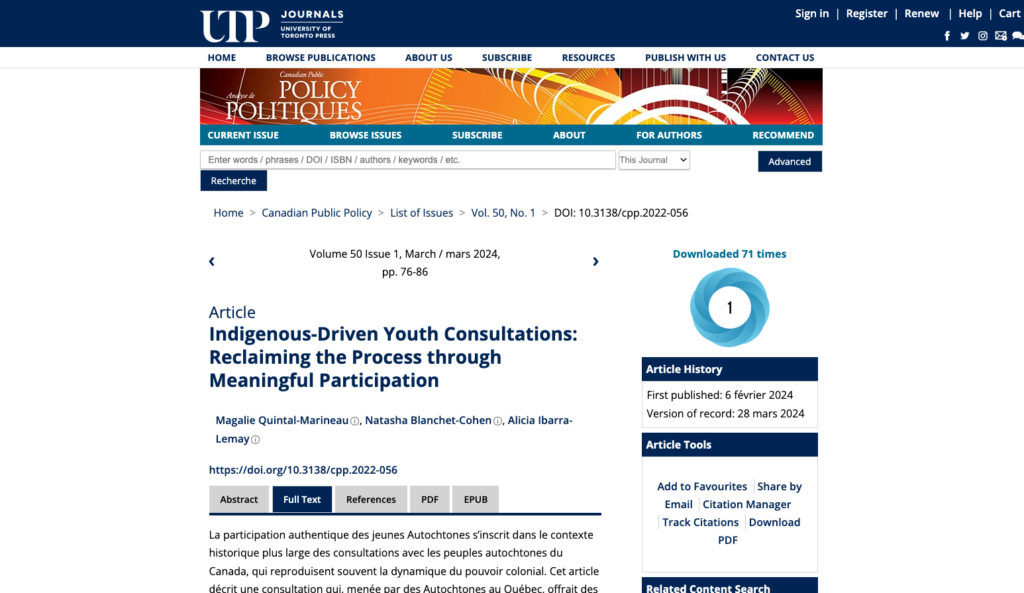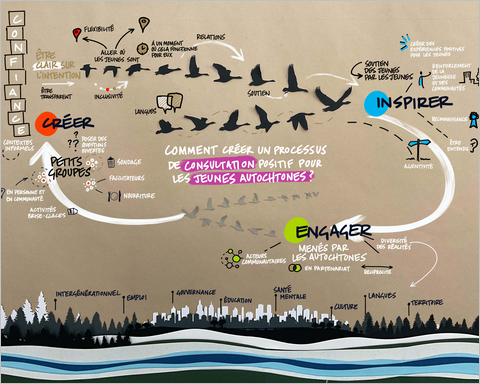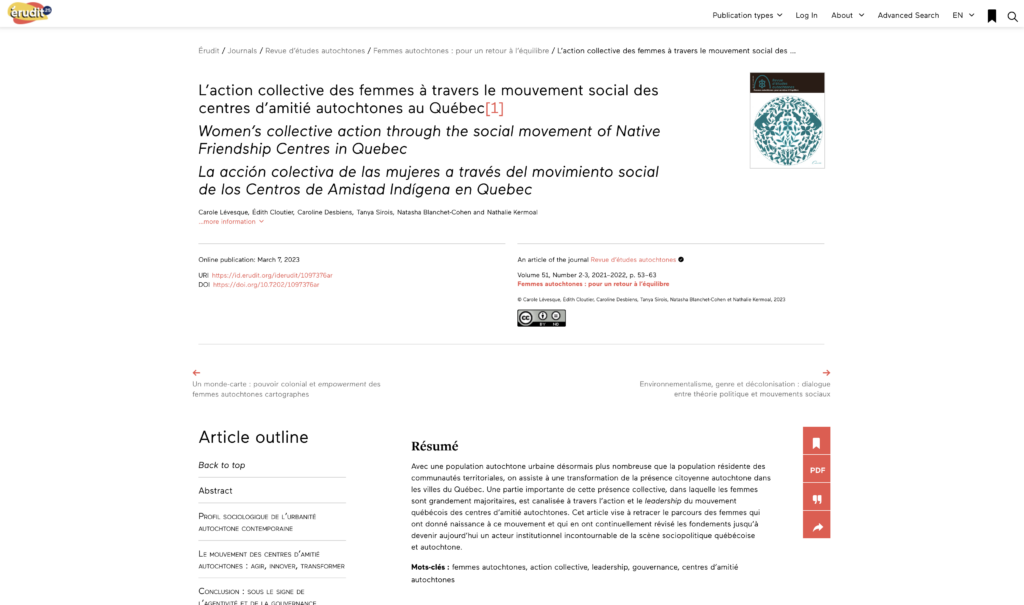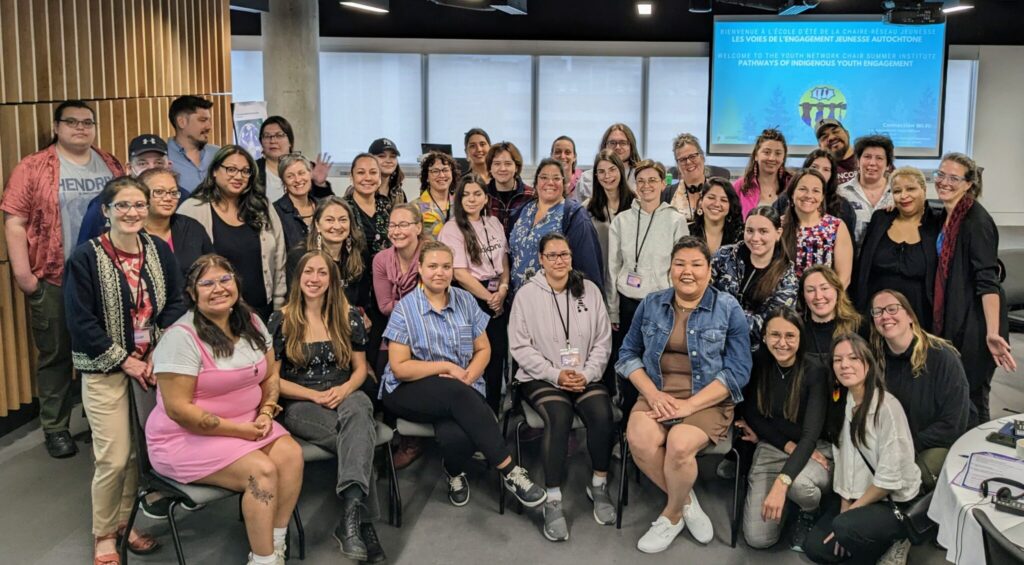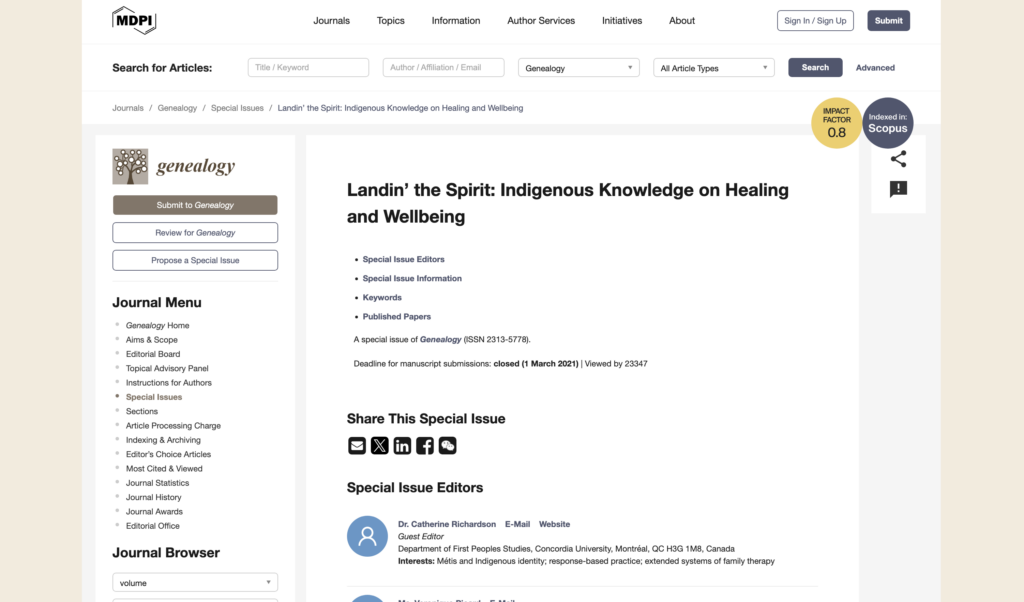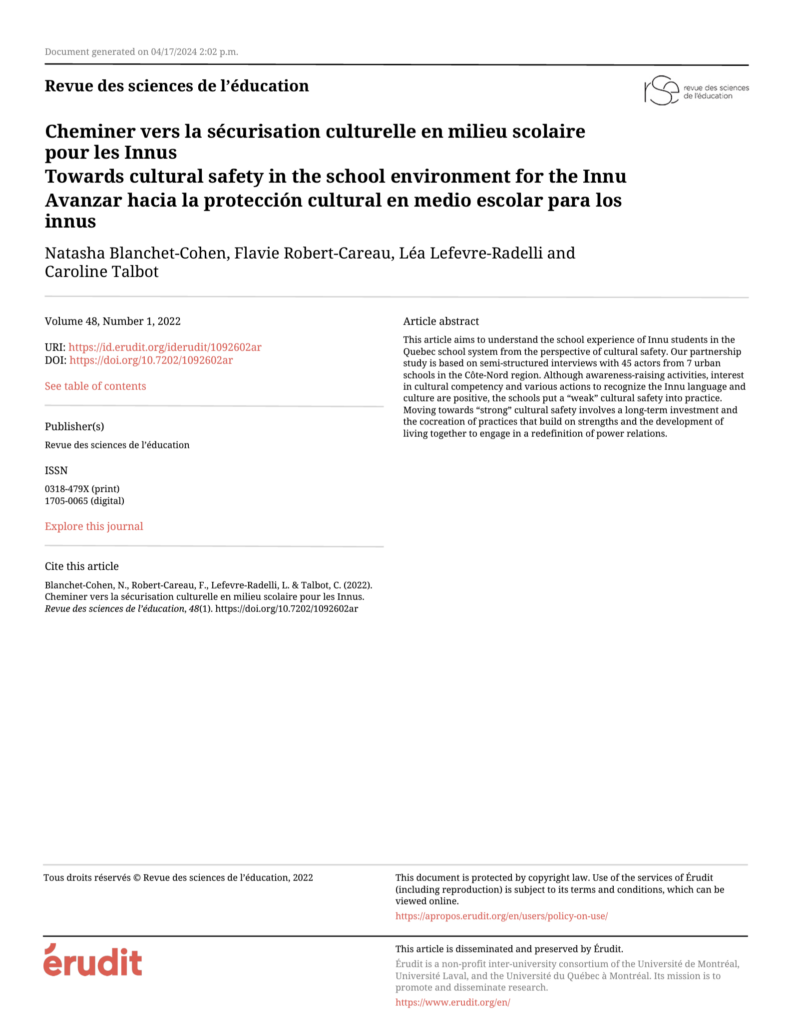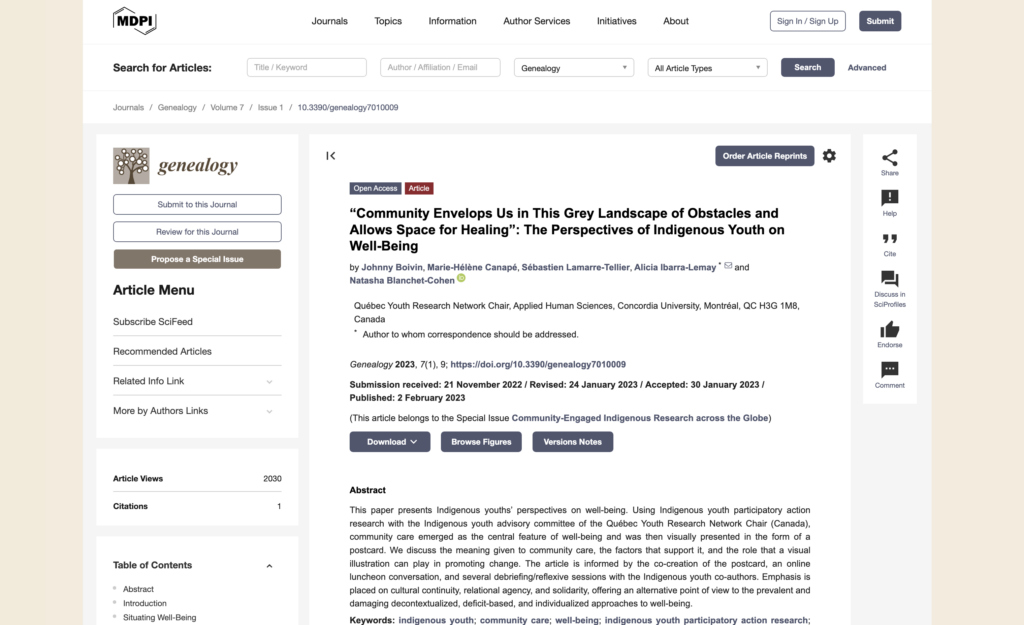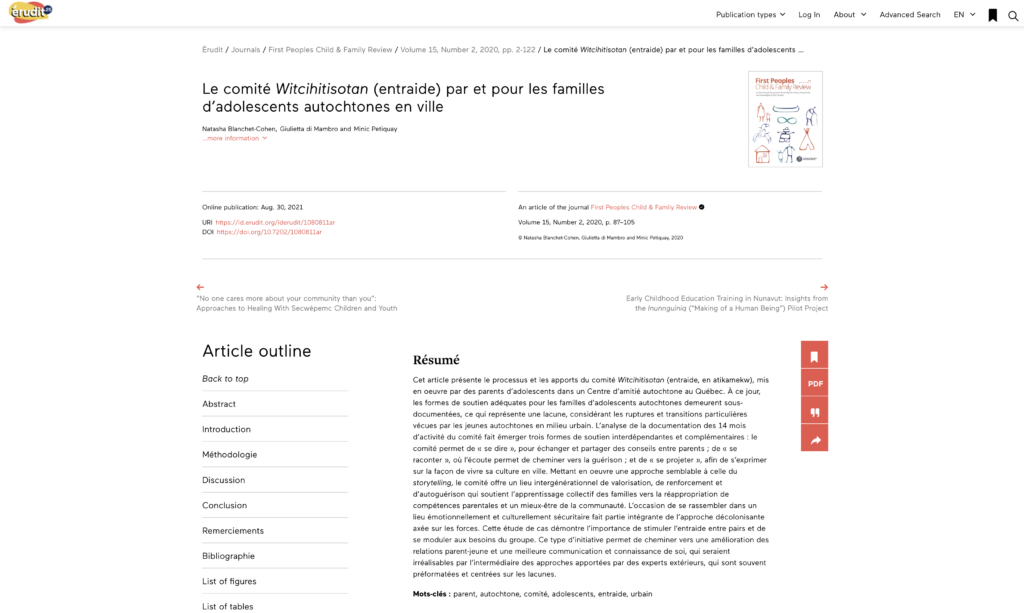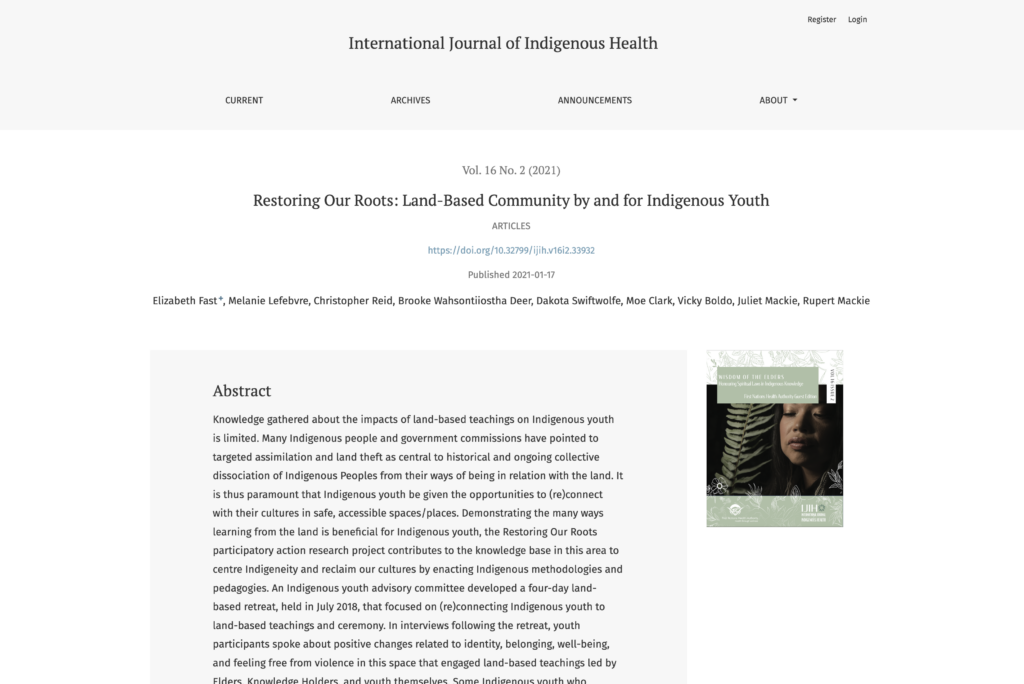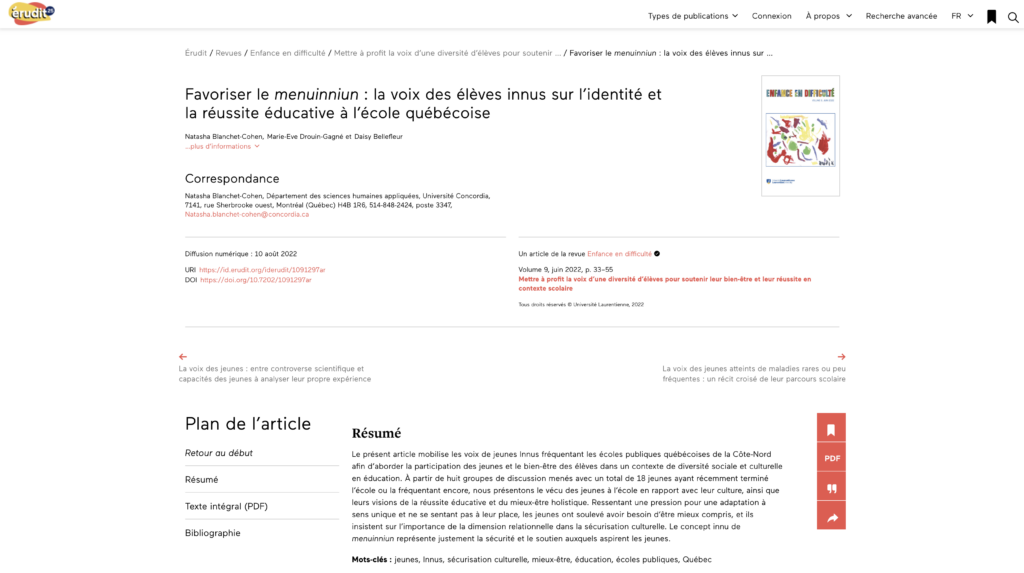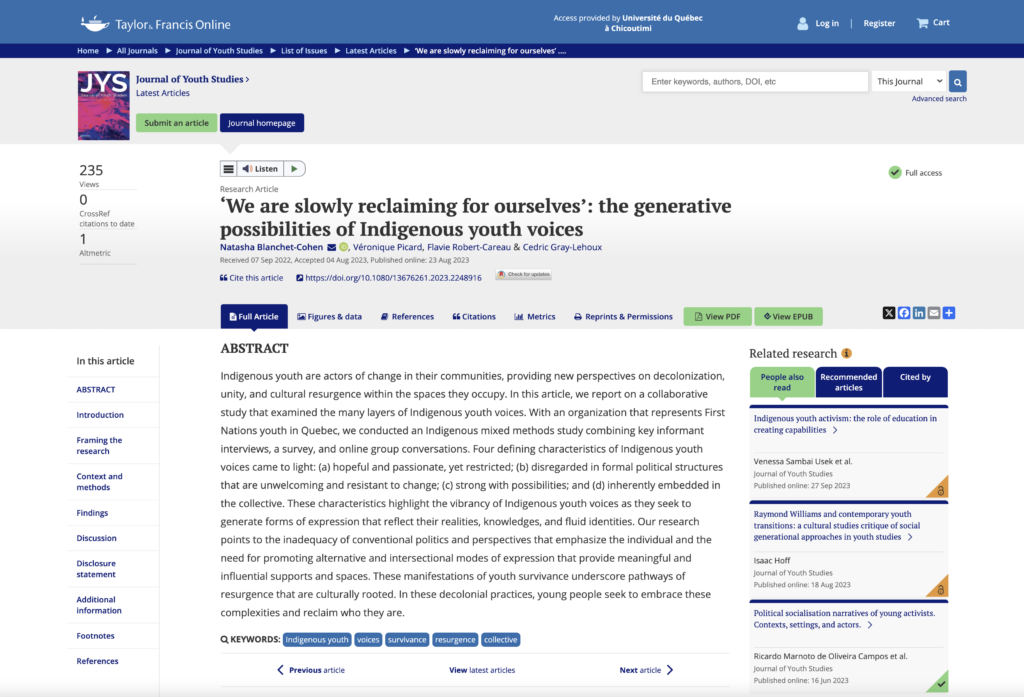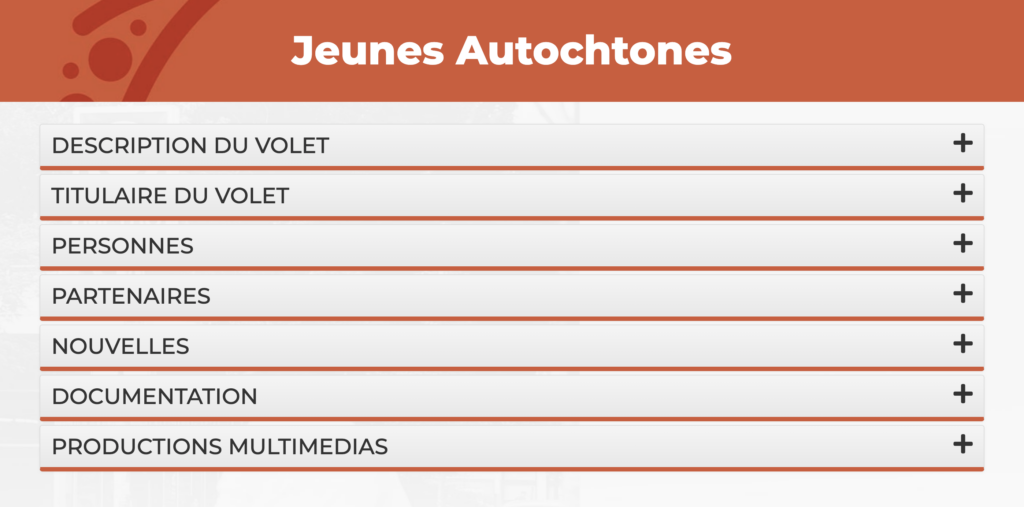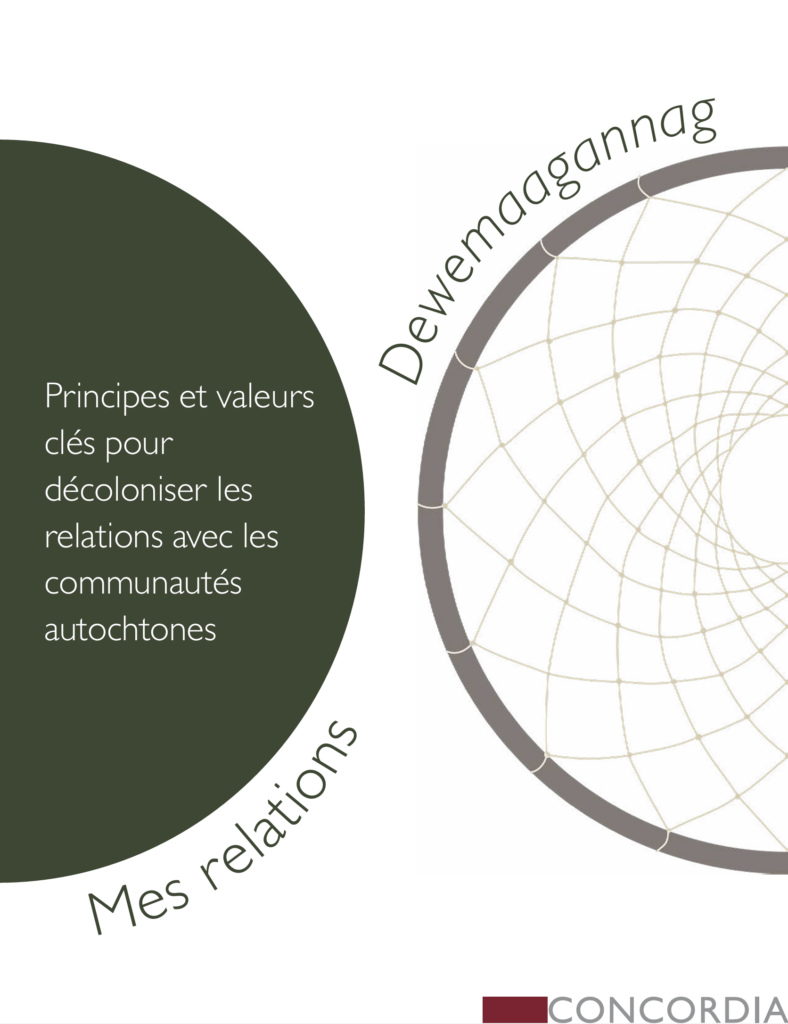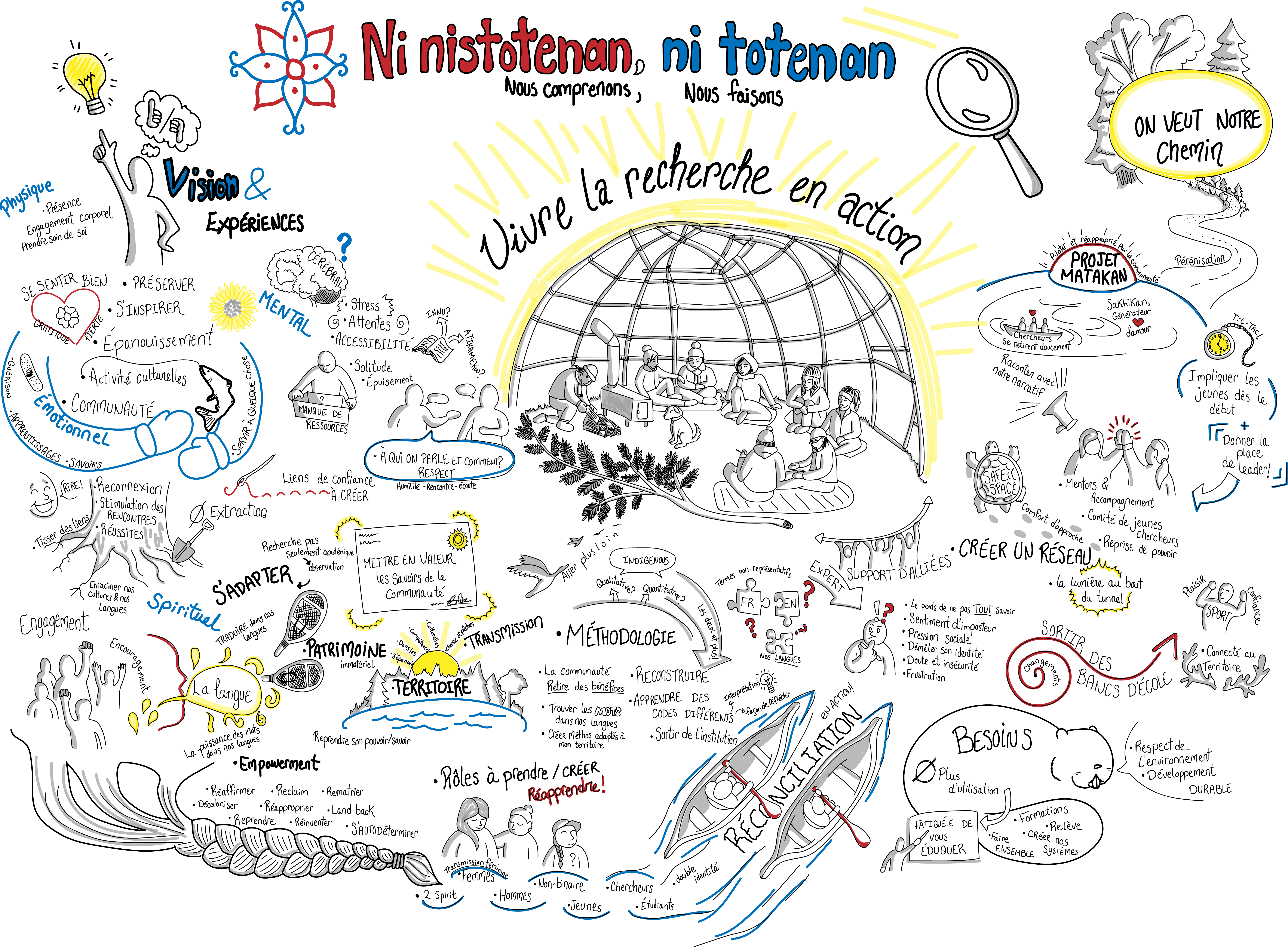Notice bibliographique
Rahm, J., Fahrni, L., et Touioui, F. (2023). A mobile theory of learning and becoming in and through relations of dignity: A research framing for research outside the classroom. Dans P. Patrick (dir.), Applying Learning Theories in Research Outside the Classroom. Springer.
Résumé
In this chapter, we first lay out the theoretical grounding of a relational view of learning and identity in movement, implying relations and more-than-human interactions marked by dignity. We make evident its potential for future studies of informal learning through a vignette up front and by situating it in the literature on learning outside the classroom. We then offer two other illustrations of what a mobility lens to the study of learning and identity can make evident. First, we draw on data from a video-ethnography of an afterschool family cooking activity and through a focus on telling moments show how mobility was a design feature of that activity but also evident from the manner objects and bodies were entangled within and beyond that activity. We pay special attention to bi-directionality in child–adult interactions, agency, and forms of affective engagement. The second example offers another unit of analysis and way into an understanding of mobility by expanding the space–time scale relying on longitudinal data of some youth participants, entangled with a study of their group work, as part of a coding and making project. Overall, the three vignettes offer rich insights into the tensions inherent to a mobile theory of learning and becoming. The cases also illustrate the manner dignity in and through relations takes form in situ. We end the chapter with a discussion of why such a theoretical stance is important for future research, offering a theoretically rich lens to the study of learning outside the classroom. We see much value in a mobile theory of learning and identity as it also centers intersectionality and local politics and thereby offers a means to more deeply attend to and unpack issues of equity and social justice in informal learning.
Hyperlien
https://doi.org/10.1007/978-3-031-13291-9_9Publication du membre
Jrène RahmAppartenance aux volets










